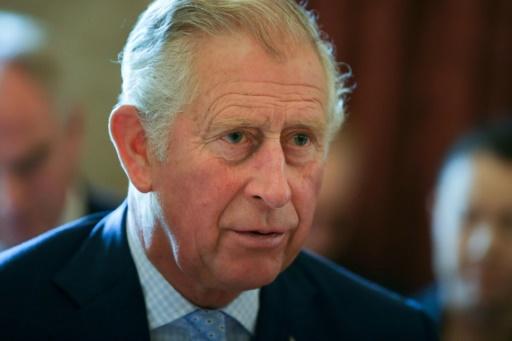
Britain's Prince Charles warned Thursday that tiny island nations could be wiped off the map by climate change, at a Commonwealth gathering geared towards finding practical ways to reverse its effects.
Charles, the heir to the throne, said the planet was facing an existential crisis as he urged the Commonwealth to take forward its ideas to COP23, the next United Nations climate summit in the German city of Bonn in November.
While the 52-member Commonwealth contains G20 industrial powers like Britain, Canada and Australia and emerging forces like India and Nigeria, many of its members are developing island microstates.
The 2015 COP21 Paris accord targets keeping the rise in temperatures within two degrees Celsius (3.6 Fahrenheit) above pre-industrial levels and strives for 1.5 C (2.7 F) if possible.
Charles said some northern nations seemed worryingly ambivalent about the difference.
"For some countries, particularly, the small island developing states of the Commonwealth, the difference could scarcely be more critical as it may literally mean the survival of their countries or their extinction," he told ambassadors and science experts gathered at the organisation's London headquarters.
"We face an existential crisis in every sense of the word."
- Carbon-eating concrete -
A two-day Commonwealth conference in October brought together global experts to thrash out innovative schemes that could pull carbon out of the air and put it back into the Earth.
Thursday's gathering brought together the results of that conference and try and forge a common approach to COP23.
"The task we face is not only to protect nature but also to collaborate with nature," said Charles.
"The ideas we need are already out there but they will not happen by chance."
The Commonwealth is looking at notions including carbon-absorbing concrete and getting more productive agriculture through mimicking the ecosystems of wild, untended land.
They have also considered buildings designed like termite mounds that ventilate themselves with cool air, or making ships' hulls like shark skin to move through water more efficiently.
Also raised were vertical axis wind turbines arranged in school-of-fish formation so the ones behind gain momentum from the vortices, creating far more wind power than regular wind farms.
- 'Will we survive? No' -
US ecovillage godfather Albert Bates said that, critically, taking carbon out of the atmosphere could be a profitable business, bucking common perception.
He said he had been experimenting with biochar, a pure form of charcoal made from waste products like cardboard boxes.
"You can also use it as plaster or paint. It takes mould and smoke out of the buildings and sequesters it in the walls. It cleans sick buildings," he told AFP, saying it would be useful in damp climates.
Commonwealth Secretary General Patricia Scotland said experts were coming up with some "really extraordinary science".
"Action plans are what I'm really looking for," she told AFP.
"We want to serve the rest of the globe."
Anote Tong, who was president of Kiribati from 2003 to 2016, said his central Pacific nation of reef islands and atolls, was facing extinction without international action.
He said that, when in office, he had talks with neighbours Fiji, who would accomodate the entire 100,000-strong population if necessitated by climate change and rising sea levels.
"I did look into the future and it doesn't look good," he told AFP.
"The trend, in combination with the science coming forward, is frightening.
"Will we continue to survive into the future? I suggest no.
"The science is saying that we will be under water."
The Commonwealth wants to have a full regenerative development plan in place by its next leaders' summit in 2018 in London.



































